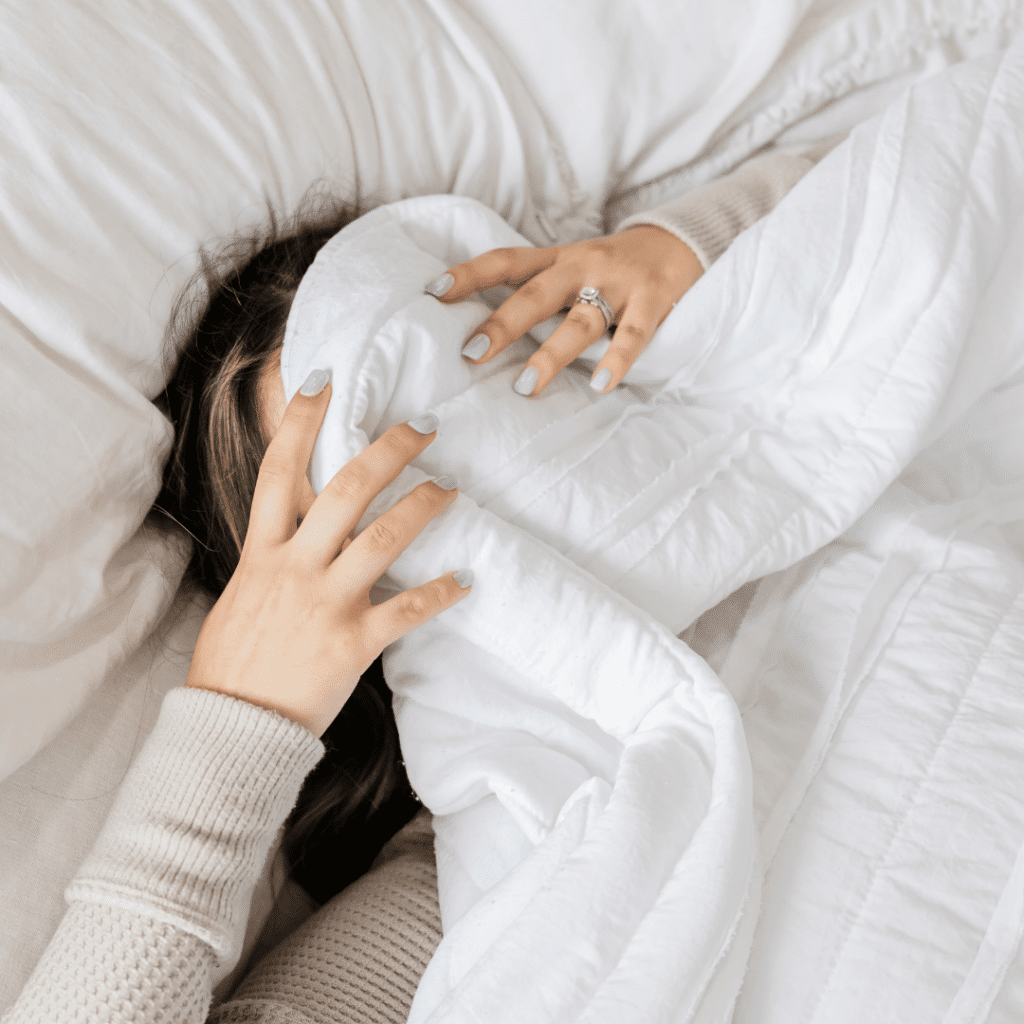Sleep Disturbances?
Welcome to the 2 AM Club.
Waking up in the early hours for no apparent reason? If you’re a woman in your 40s or early 50s finding yourself staring at the ceiling in the middle of the night, welcome to what I call the 2 AM Club – an unofficial (and unwanted) sisterhood of women navigating perimenopause and its effects on sleep.
1. Why Is Perimenopause Ruining Your Sleep?
Perimenopause is the transitional stage before menopause, and it often begins years before your final period. During this time, hormone levels – especially oestrogen and progesterone, start to fluctuate. These changes don’t just affect your cycle. They disrupt your body’s internal clock, and the delicate balance of melatonin and cortisol, two key hormones that regulate sleep and stress.
Here’s what might be happening behind the scenes:
- Melatonin levels drop, making it harder to fall asleep and stay asleep.
- Cortisol levels spike, often around 2-3 AM, causing sudden wake-ups and a restless mind.
- Night sweats and temperature fluctuations can cause further discomfort and disturbed rest.
Mood and anxiety changes, which are common in perimenopause, can make your brain feel “wired” when it’s meant to be winding down.
3. Common Sleep Disturbances in Perimenopause
- Difficulty falling asleep
- Waking up at 2–3 AM and struggling to get back to sleep
- Night sweats or hot flushes
- Restless legs
- Waking up feeling unrefreshed or exhausted
- Increased anxiety or racing thoughts at night
These aren’t just annoying symptoms – they impact quality of life. Poor sleep during perimenopause has been linked to fatigue, brain fog, low mood, increased anxiety, and even weight gain due to imbalanced cortisol and insulin levels.
4. You’re Not Just Tired – You’re Running on Empty
When sleep becomes unpredictable, so does everything else. Your nervous system becomes hyper-alert, and your adrenals are constantly pumping out stress hormones, even when you’re lying still in bed. Over time, this can lead to adrenal fatigue, chronic stress, and burnout – all of which compound the challenges of perimenopause.
How to Support Better Sleep During Perimenopause…
The good news? You can improve your sleep with the right support, lifestyle shifts, and hormone-aware strategies. Here are a few tips to get you started:
1. Balance Blood Sugar
Blood sugar crashes in the night can spike cortisol. Avoid alcohol and sugar in the evening, and aim for a protein-rich dinner.
2. Support Your Circadian Rhythm
Expose yourself to morning sunlight, dim lights in the evening, and avoid screens for at least an hour before bed.
3. Create a Wind-Down Routine
Meditation, journaling, gentle yoga or magnesium baths can signal to your body that it’s safe to relax.
4. Consider Herbal or Nutritional Support
Magnesium, Ziziphus, Valerian, Lavender, and Passion flower are common herbal supplements that I prescribe for women in perimenopause to support sleep quality and decrease stress, although it’s really important to have a consultation with a professional before taking any new herbs as they can contraindicate with some medications and medical conditions, and need to be crossed checked for interactions by a professional before prescribing.
5. Seek Expert Guidance
If perimenopause is disrupting your sleep, working with a professional who understands hormonal changes can help you personalise your approach to perimenopausal symptoms and get real results.
Check out our other articles on managing the symptoms of perimenopause.
Ready for expert support?
Visit my Sage Coaching Page to learn more about my comprehensive online coaching program designed specifically to support perimenopausal and menopausal women.
Cass

